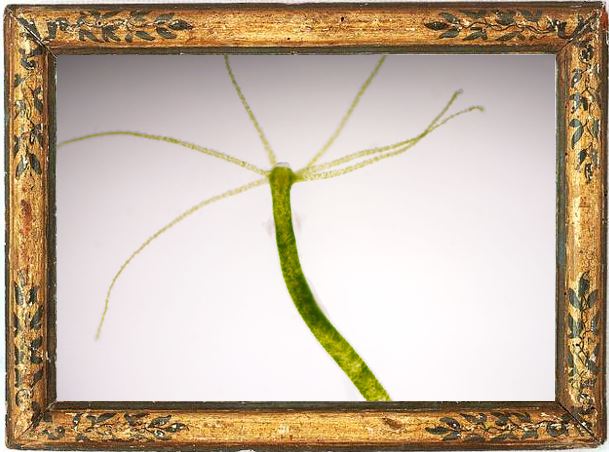Go To Sleep Little Hydra
There’s a little creature called a hydra, and it’s made news recently because it can sleep.
Why is that newsworthy? Because the hydra doesn’t have a brain.

It may not be obvious, but that is a pretty big deal. Think for a second. Do you know of anything that sleeps that doesn’t have a brain? Okay, get it out of your system. You know your brother-in-law/neighbor/coworker sleeps, but it’s questionable about them having a brain? Yep, we’ve all got those people in our lives. And yes, it felt good to say it.
Brains Need Sleep
We are all fairly comfortable with the idea that animals sleep. We know our dogs and cats zonk out next to us in bed at night – along with their other favorite places for what seems like about 20 hours a day. Horses and cows doze while standing up. And if you’ve ever been to a zoo or watched a veterinarian or wildlife program, you’ve seen all different kinds of animals sleeping. Brains all.
What about plants? An article in Popular Science tells us that while plants do have circadian rhythms, they do not sleep. Why not? Because they do not have central nervous systems. No brains, no sleep.
Desks? Chairs? Crystal goblets? Now we’re just getting silly, but no, they certainly don’t sleep.
Smartphones? Not even touching that one.
All silliness aside, science tells us that it’s our brains that need sleep to survive. That’s why the recent discovery that the hydra, with it’s simple “nerve net” nervous system, exhibits a sleep-like state has gotten so much attention.
What is a hydra and why is it such a big deal?
The hydra is a small, tropical, freshwater organism or polyp about 10mm long or less. Like their relative the jellyfish, they also use stinging cells to catch their prey.
These little guys are pretty fascinating for several reasons.
They don’t age. (jealous)
They don’t die of old age. They can starve to death, die from extreme temperatures, or be eaten, but they don’t seem to die on their own. They have been called “biologically immortal”.
They reproduce all by themselves by growing a “bud” off their side, which matures into a copy of themselves and breaks off into a new hydra. Only when conditions are rough will they resort to reproducing sexually. (bummer)
They can regenerate. If you cut a hydra in half, each half will become a whole again.
Given its ability to regenerate itself and to seemingly remain ageless and live forever, it’s understandable why scientists have been studying them so diligently. Imagine all the medical and cosmetic advances that may come from figuring these creatures out.
But the finding that they may, in their own way, sleep may mean that sleep evolved before the brain did. In fact, a new Korean study discovered that some of the chemicals that cause drowsiness and sleep in humans cause the same in the hydra.
The scientists also found that instead of following a roughly 24-hour circadian rhythm like humans, the hydra has a roughly 4-hour cycle.
Still not sure why all this is a big deal?
Sleep science is a relatively new field of study in medicine. The fact is, as much as scientists know about the body and the brain, they still haven’t pinned down the exact origin or purpose of sleep. These new findings provide some important clues in understanding sleep.
And the better we understand sleep, the better our doctors will be able to help us when we’re having troubles. And ultimately, we’ll be better able to know how to help ourselves make the most of our own sleep.
